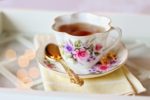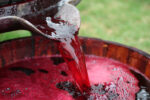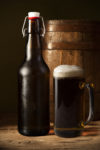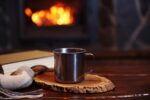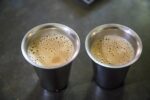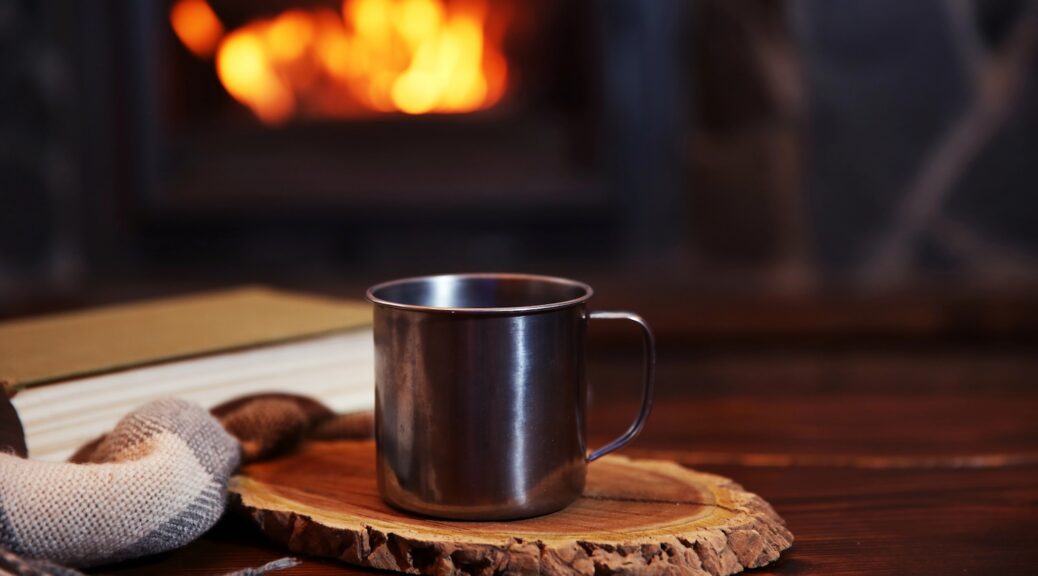
Coffee Substitutes and Adulterations
Before U.S. Food Inspections became law, it was “buyer beware.” It was important to find a grocer or food supplier you trusted. But it was also necessary to know how to tell if your food was adulterated. Some foods had extra ingredients or fillers that were harmless, but not always; some were dangerous to ingest.
INFORMATION BELOW COMPILED FROM 1800s COOKBOOKS
COFFEE SUBSTITUTES AND ADULTERATIONS
Ground coffee is extensively adulterated, and mainly with the much cheaper. Rye, beans, peas, acorns, carrots, turnips, dandelion root, burned bread, and many similar substances have at times been used as substitutes or adulterants for coffee. But as none of them contain caffeine or the volatile aromatic oil, they cannot serve the same physiological principle.
CHICORY OR WILD ENDIVE
Roasting develops in this root a volatile oil which exercises upon the system some of the nerve-soothing, hunger-staying effects of tea and coffee. A little chicory gives as dark a color and as bitter a taste as a great deal of coffee. It is not unwholesome unless taken in excess, when its effects are bad. It is a poor substitute for coffee, but some people seem actually to prefer coffee which contains chicory.
TESTS FOR ADULTERATIONS
If ground coffee cakes in the paper, or when pinched by the fingers, or if, when a little is put into water, a part sinks while the rest swims, and the water becomes immediately discolored, the coffee is probably adulterated. There are numerous brands of ground coffee on the market, and some of them are very popular and satisfactory. There are also various kinds of “Extracts” and “Essences” of coffee, and even humble chicory may sometimes be seen without disguise and nicely put up in yellow papers.
Both tea and coffee are largely adulterated with other harmful substances, thus adding another reason why their use should be discarded. It is stated on good authority that it is almost impossible to obtain unadulterated ground coffee.
In view of all these facts, it certainly seems wisest if a beverage is considered essential, to make use of one less harmful. Hot milk, hot water, hot lemonade, caramel coffee, or some of the various grain coffees, recipes for which are give in the following pages, are all excellent substitutes for tea and coffee, if a hot drink is desired.
COFFEE SUBSTITUTES
BEET COFFEE
Wash best beets thoroughly, but do not scrape. Slice, and brown in a moderate oven,* taking care not to burn. When brown, break in small pieces and steep the same as ordinary coffee.
*moderate oven – about 350-400 degrees Fahrenheit.
CARAMEL COFFEE
Take three quarts best bran, one quart corn meal, three tablespoons of molasses; mix and brown in the oven like ordinary coffee. For every cup of coffee required, use one heaping tablespoon of the caramel. Pour boiling water over it, and steep, not boil, for fifteen or twenty minutes.
CARAMEL COFFEE No. 2
Take one cup each of white flour, corn meal, unsifted Graham flour,* and molasses. Mix well and form into cakes half an inch thick and a little larger around than a silver dollar. If the molasses is not thin enough to take up all the dry material, one fourth or one half a cup of cold water may be added for that purpose. Bake the cakes in the oven until very dark brown, allowing them to become slightly scorched. When desired for use, take one cake for each cup of coffee required, pour sufficient water over them, and steep, not boil, twenty minutes.
*graham flour – a whole-bran flour (named after Reverend Sylvester Graham, who promoted it as a treatment for dyspepsia in the 1800s.
CARAMEL COFFEE No. 3
To three and one-half quarts of bran and one and one half quarts of corn meal, take one pint of New Orleans molasses and one half pint of boiling water. Put the water and molasses together and pour them over the bran and corn meal which have been previously mixed. Rub all well together, and brown slowly in the oven, stirring often, until a rich dark brown. Use one heaping tablespoon of coffee to each small cup of boiling water, let it just boil up, then steep on the back of the stove for five or ten minutes.
CARAMEL COFFEE No. 4
Beat together four eggs and one pint of molasses, and mix thoroughly with four quarts of good wheat bran. Brown in the oven, stirring frequently. Prepare for use the same as the preceding.
MRS. T’s CARAMEL COFFEE
Make a rather thick batter of Graham grits or Graham meal and milk, spread it in shallow pans and bake in a moderate oven until evenly done throughout. Cut the cake thus prepared into thin strips, and break into small uniform pieces. Spread on perforated tins or sheets and brown in the oven. Each piece should be very darkly and evenly browned, but not burned. For each cup of coffee required, steep a small handful in boiling water for ten or fifteen minutes, strain and serve.
PARCHED GRAIN COFFEE
Brown in the oven some perfectly sound wheat, sweet corn, barley, or rice, as you would the coffee berry. If desired, a mixture of grains may be used. Pound or grind fine. Mix the white of an egg with three tablespoons of the ground grain, and pour over it a quart of boiling water. Allow it to come just to the boiling point, steep slowly for twelve or fifteen minutes, and serve.
WHEAT, OATS, and BARLEY COFFEE
Mix together equal quantities of these grains, brown in the oven like ordinary coffee, and grind. To one quart of boiling water take three tablespoons of the prepared coffee mixed with the white of an egg, and steep in boiling water ten or fifteen minutes.
=================================================
What Do You Drink When You Want Something Hot? Please Leave a Comment Below.
=================================================
